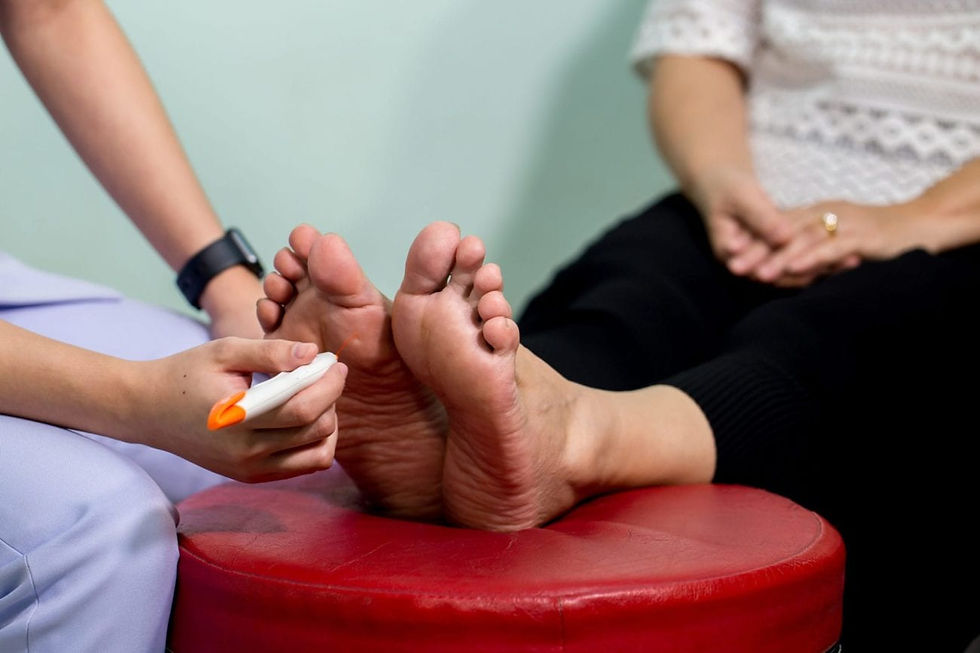Oct 5, 2024

Understanding and Managing Foot Neuropathy
Foot neuropathy, also known as peripheral neuropathy, occurs when the nerves in the feet become damaged, leading to a variety of uncomfortable symptoms. Many individuals report sensations such as tingling, burning, or sharp pain, which can interfere with everyday activities like walking or exercising. Recognizing these symptoms early is essential, as prompt treatment can help improve quality of life.

Recognizing Early Symptoms
Early signs of foot neuropathy often include tingling or burning sensations in the feet. As the condition progresses, numbness may develop, and individuals might experience increased sensitivity to touch. Weakness in the muscles can also occur, making it difficult to maintain balance. If you notice these symptoms, it’s important to consult a healthcare provider for assessment and intervention.

Common Causes
Various factors can contribute to foot neuropathy, with diabetes being one of the most common. High blood sugar levels over time can damage nerves, particularly in the extremities. Other causes include physical injuries, infections, certain medications, and excessive alcohol use. In some cases, the specific cause may not be identifiable, which can complicate treatment options. Addressing any underlying issues is important for managing the condition effectively.
Effective Management Strategies
While there is currently no cure for foot neuropathy, several strategies can help alleviate symptoms and improve daily functioning:
Medications: Your doctor may prescribe pain-relieving medications such as anti-seizure drugs or antidepressants that target nerve pain. These can help modify the signals your nerves send to your brain.
Physical Therapy: Engaging in physical therapy can enhance strength and balance, making it easier to navigate daily activities. A therapist can tailor exercises to meet your specific needs.
Acupuncture: This traditional Chinese medicine technique involves inserting thin needles into specific points on the body. Many individuals with neuropathy find that acupuncture helps reduce pain and improve nerve function, providing a complementary approach to conventional treatments.
Lifestyle Changes: Maintaining healthy blood sugar levels is vital for those with diabetes. A balanced diet, regular exercise, and avoiding tobacco and excessive alcohol can contribute to better nerve health.
Foot Care: Taking care of your feet is essential. Wearing well-fitting, supportive shoes and routinely checking for injuries or cuts can prevent complications like infections or ulcers, which can be more severe in individuals with neuropathy.
Foot neuropathy can be challenging, but understanding your condition and taking proactive steps can lead to improved management. Early detection, effective treatment, and regular consultations with healthcare professionals can empower you to maintain mobility and enhance your quality of life.

If you are experiencing symptoms of foot neuropathy, don’t hesitate to reach out to a foot healthcare provider for support and guidance.

Comments